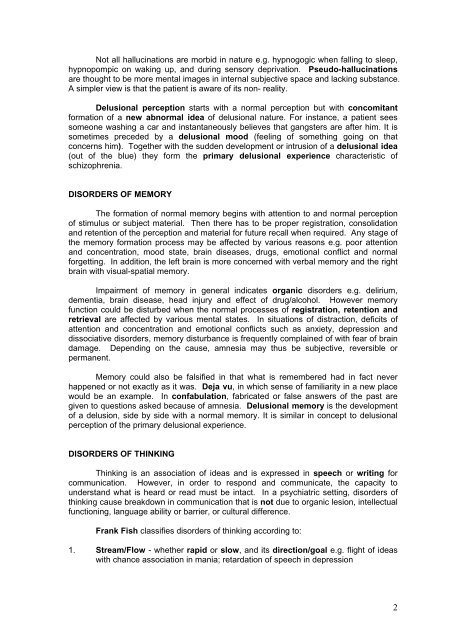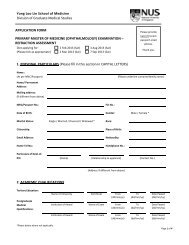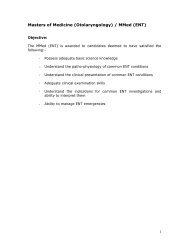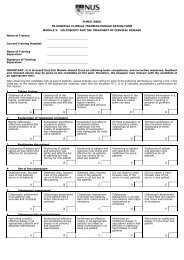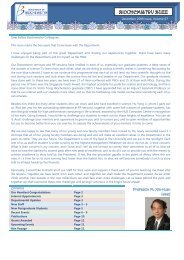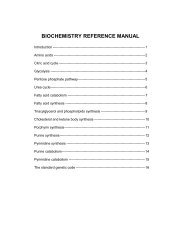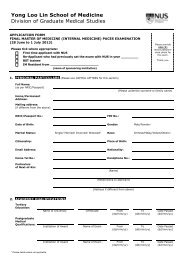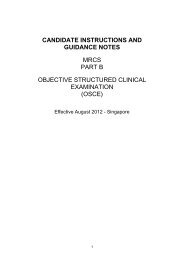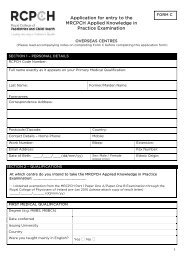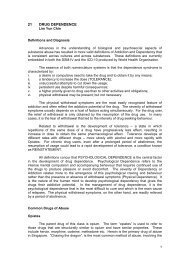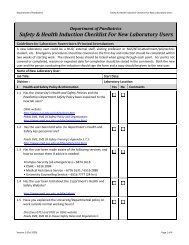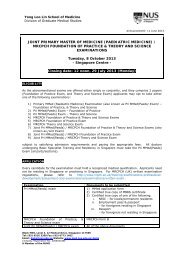6 PSYCHOPATHOLOGY I 1
6 PSYCHOPATHOLOGY I 1
6 PSYCHOPATHOLOGY I 1
You also want an ePaper? Increase the reach of your titles
YUMPU automatically turns print PDFs into web optimized ePapers that Google loves.
Not all hallucinations are morbid in nature e.g. hypnogogic when falling to sleep,hypnopompic on waking up, and during sensory deprivation. Pseudo-hallucinationsare thought to be more mental images in internal subjective space and lacking substance.A simpler view is that the patient is aware of its non- reality.Delusional perception starts with a normal perception but with concomitantformation of a new abnormal idea of delusional nature. For instance, a patient seessomeone washing a car and instantaneously believes that gangsters are after him. It issometimes preceded by a delusional mood (feeling of something going on thatconcerns him). Together with the sudden development or intrusion of a delusional idea(out of the blue) they form the primary delusional experience characteristic ofschizophrenia.DISORDERS OF MEMORYThe formation of normal memory begins with attention to and normal perceptionof stimulus or subject material. Then there has to be proper registration, consolidationand retention of the perception and material for future recall when required. Any stage ofthe memory formation process may be affected by various reasons e.g. poor attentionand concentration, mood state, brain diseases, drugs, emotional conflict and normalforgetting. In addition, the left brain is more concerned with verbal memory and the rightbrain with visual-spatial memory.Impairment of memory in general indicates organic disorders e.g. delirium,dementia, brain disease, head injury and effect of drug/alcohol. However memoryfunction could be disturbed when the normal processes of registration, retention andretrieval are affected by various mental states. In situations of distraction, deficits ofattention and concentration and emotional conflicts such as anxiety, depression anddissociative disorders, memory disturbance is frequently complained of with fear of braindamage. Depending on the cause, amnesia may thus be subjective, reversible orpermanent.Memory could also be falsified in that what is remembered had in fact neverhappened or not exactly as it was. Deja vu, in which sense of familiarity in a new placewould be an example. In confabulation, fabricated or false answers of the past aregiven to questions asked because of amnesia. Delusional memory is the developmentof a delusion, side by side with a normal memory. It is similar in concept to delusionalperception of the primary delusional experience.DISORDERS OF THINKINGThinking is an association of ideas and is expressed in speech or writing forcommunication. However, in order to respond and communicate, the capacity tounderstand what is heard or read must be intact. In a psychiatric setting, disorders ofthinking cause breakdown in communication that is not due to organic lesion, intellectualfunctioning, language ability or barrier, or cultural difference.Frank Fish classifies disorders of thinking according to:1. Stream/Flow - whether rapid or slow, and its direction/goal e.g. flight of ideaswith chance association in mania; retardation of speech in depression2


